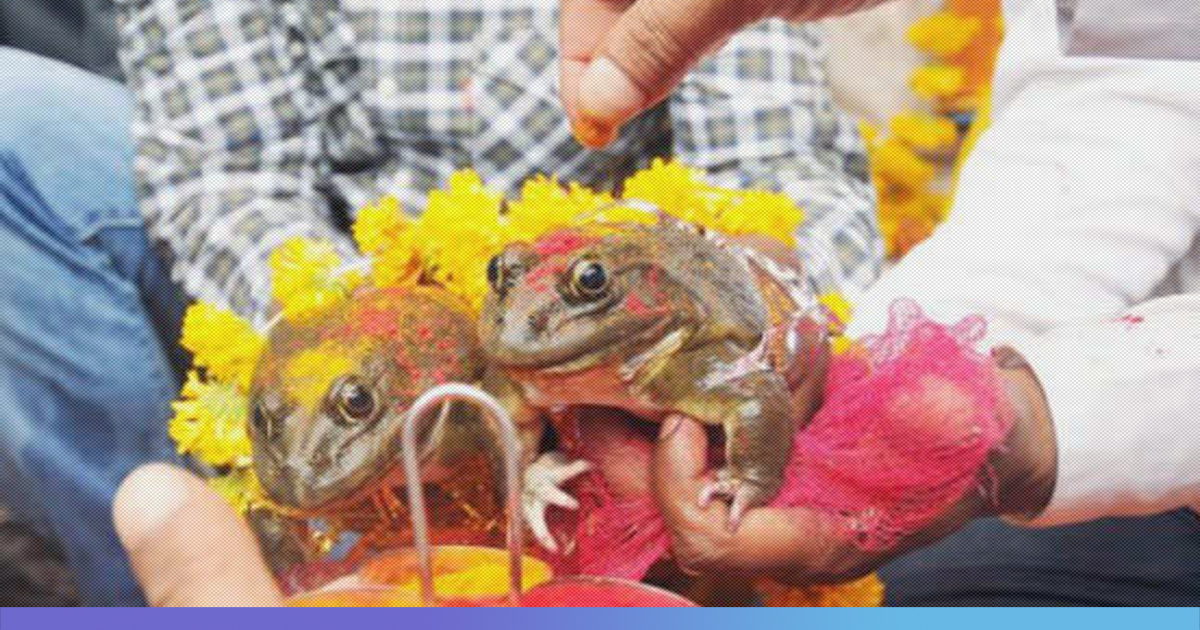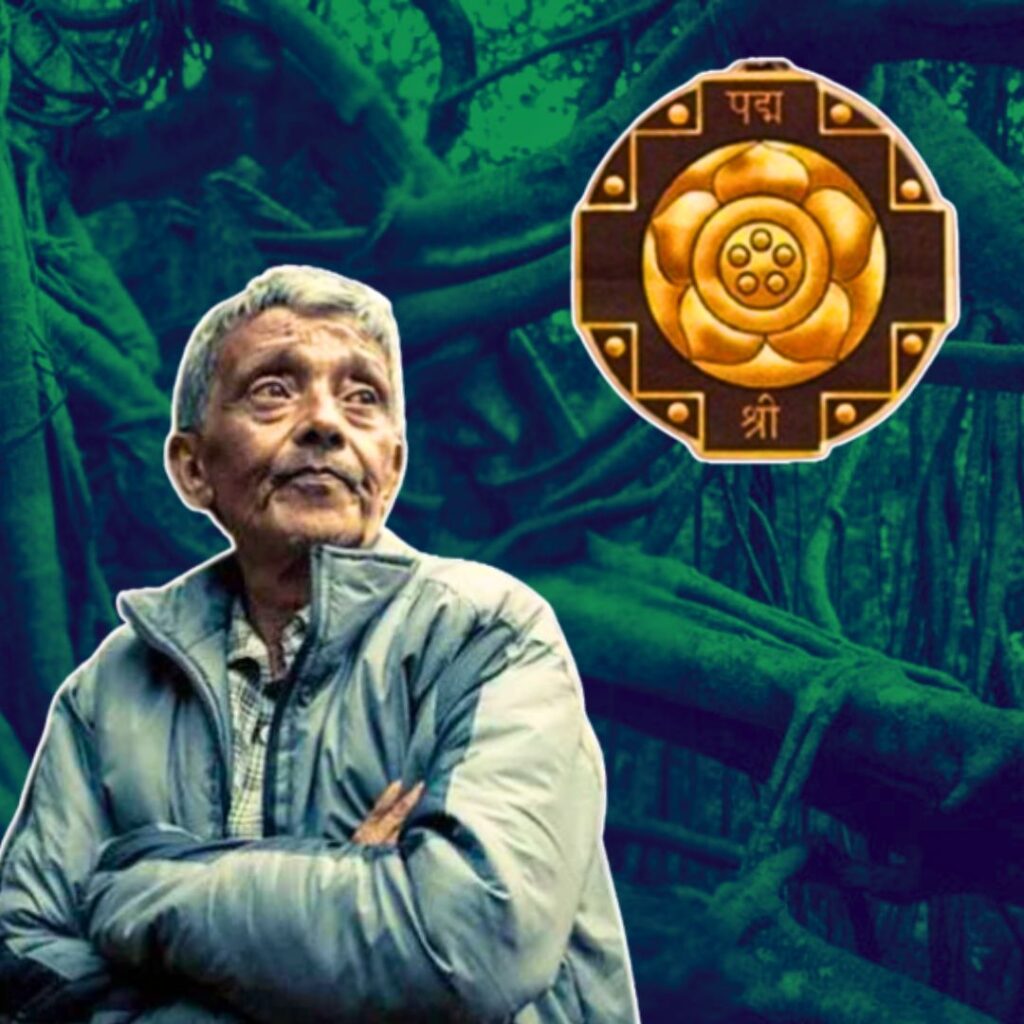To appease the rain God and bring showers to Udupi, a marriage between two frogs was solemnized in the region.
In the midst of the ongoing water crisis in Karnataka’s coastal districts, Udupi Nagarika Samithi and Pancharathna Seva Trust performed the unconventional marriage at a hotel on June 8.
The Frog Marriage – Varun Weds Varsha
The frogs, ‘Varun’ from Kalsanka in Udupi and ‘Varsha’ from Kolalagiri in Kilinje were declared husband and wife in the auspicious hour of ‘Simhalagna’.
According to trust general secretary Nityananad Olakadu, who solemnised the marriage, they performed the ‘Mandooka Kalyanotsava’ ritual to please the rain God.
Earlier, four frogs were taken by the organisers to the department of Zoology in Manipal, where the zoologists identified the male and female frogs. Following the identification, one male and one female were singled out.
The frogs were then taken out for the marriage ceremony in a procession in a tricycle to Kidiyoor Hotel. The female was decked head to toe.
#WATCH Frogs married in Karnataka’s Udupi to please the rain gods. The frogs were dressed in custom made outfits for the ceremony. pic.twitter.com/s9I4rLT0Tu
— ANI (@ANI) June 8, 2019
A volunteer, offering ‘Aarathi’ to the amphibians, tied ‘Karimani’ and toe ring on the female frog.
Marriage invitation cards were also printed for the occasion. The guests were urged to offer prayers to the rain God as an ideal gift to the newlyweds.
The frogs were released at Mannapalla in Manipal after the wedding.
A feast followed the wedding ceremony, which hundreds of people attended, including members of women Bhajan troupes.
Is This Superstitious Practice Common?
The Logical Indian spoke to Narendra Nayak, a rationalist, sceptic, and godman debunker from Mangalore, and the president of the Federation of Indian Rationalist Associations (FIRA), to get an insight into such practices.
“This is not specific to Karnataka but is widely practised in several parts of the country. People resort to a number of superstitious practices in an attempt to please the rain God and bring showers in the region,” Nayak said.
“Frog marriage is not the only practice. In some regions, people sit in huge cooking utensil filled with water and chant slogans to summon the rains. People sometimes also dig-up the graves of those who died due to illness.”
Some people in the tribal belts believe that taking out a funeral procession of someone who is still alive can please the rain god.
In 2017, the Karnataka State Legislative assembly passed the Prevention and Eradication of Inhuman Evil Practices and Black Magic Bill, 2017, also known as the anti-superstition bill. Only BJP leaders opposed the said bill. The bill has also banned ‘made snana’ (a practice where Dalits roll in the leftover food in plantain leaves of the upper caste).
Practices such as padayatras, pilgrimage, parikrama at any religious shrine have been excluded from the bill. Also, reciting stories from any religious text about miracles performed by ‘saints’ or ‘devils’, religious processions and celebrations are considered acceptable.
“Although practices like these are generally harmless and do not prove disastrous like black magic rituals often do, it is disappointing that people do not realise the importance of science and the fact that it is science that controls the nature.”
According to Nayak, education is important to make people realise the pointlessness of superstitions.
Also Read: In A Step To Curb Superstitious Practices, Karnataka Govt. Passes Anti-Superstition Bill










